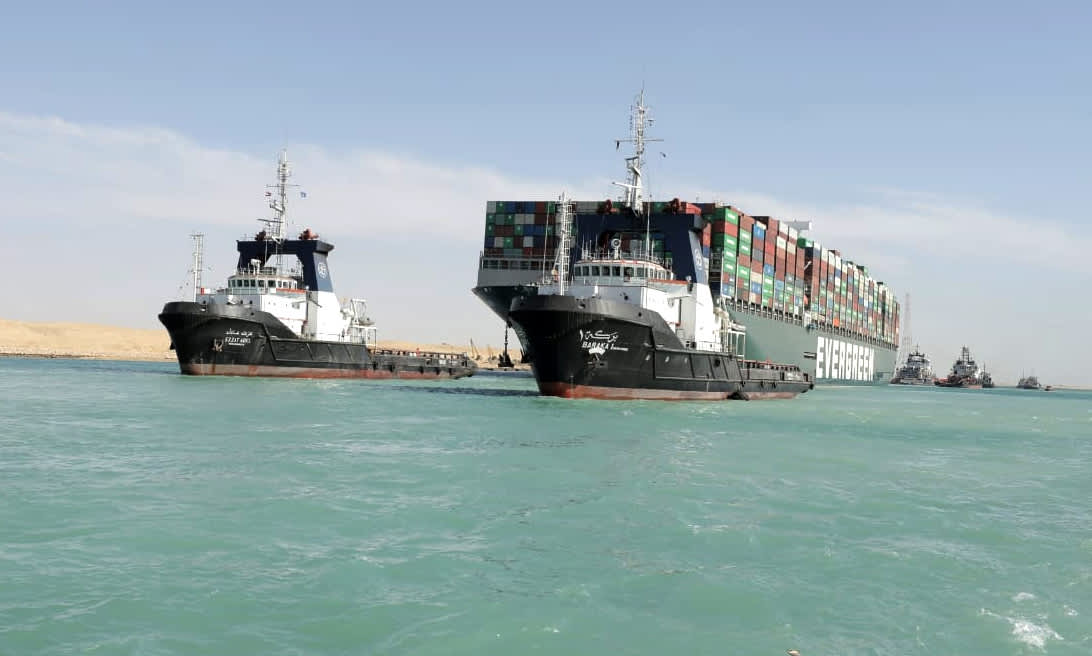
The Ever Given may have been freed, but the impact of the ship blocking the Suez Canal will be felt for months to come, Captain Andrew Kinsey warned on Monday.
“With these vessels, they’re carrying cargo, and they’re also carrying empty boxes on a backhaul to redistribute the global supply of containers,” Kinsey, senior marine risk Manager at Allianz, said on CNBC’s “The News with Shepard Smith.”
“So with this delay, we’re going to see a lag in arrivals and then we’re going to see a surge at certain ports, while these vessels then show up,” Kinsey said.
The Ever Given, the 220,000-ton mega ship that blocked the Suez Canal for nearly six days, was freed on Monday. A fleet of tugboats — helped by raised tides — wrenched the bow of the four-football-field long behemoth from the canal’s bank, where it had run aground last week.
Osama Rabei, the head of the Suez Canal Authority, said at least 113 of the more than 420 vessels that waited for the ship to be freed are expected to cross the canal by Tuesday morning.
But Kinsey said the event’s effects will be felt in the coming months. It could even exacerbate an ongoing chip shortage that’s hindering global car production.
“The fascinating thing about this is that the container ships carry manufactured goods, but they also carry pieces of manufactured goods,” Kinsey said. “Microchips right now in car production are one of the key things we’re seeing a global shortage of, that’s impacting everything from video games to cars.”
Around 12% of global trade passes through the Suez Canal. Lloyd’s List estimates that more than $9 billion worth of goods passes through the 120-mile waterway each day, translating to around $400 million per hour.
Kinsey, who has navigated the Suez over a dozen times, added the safety of the cargo ships will be something to keep and eye on moving forward.
“It’s a situation where the economy of scale for the shippers did not necessarily equate to economy of scale for the entire supply chain, so it’s something we have to watch, because we’re already to the point where we’re stretched so thin on a margin of safety, and even larger ships are on the order books,” Kinsey said.




